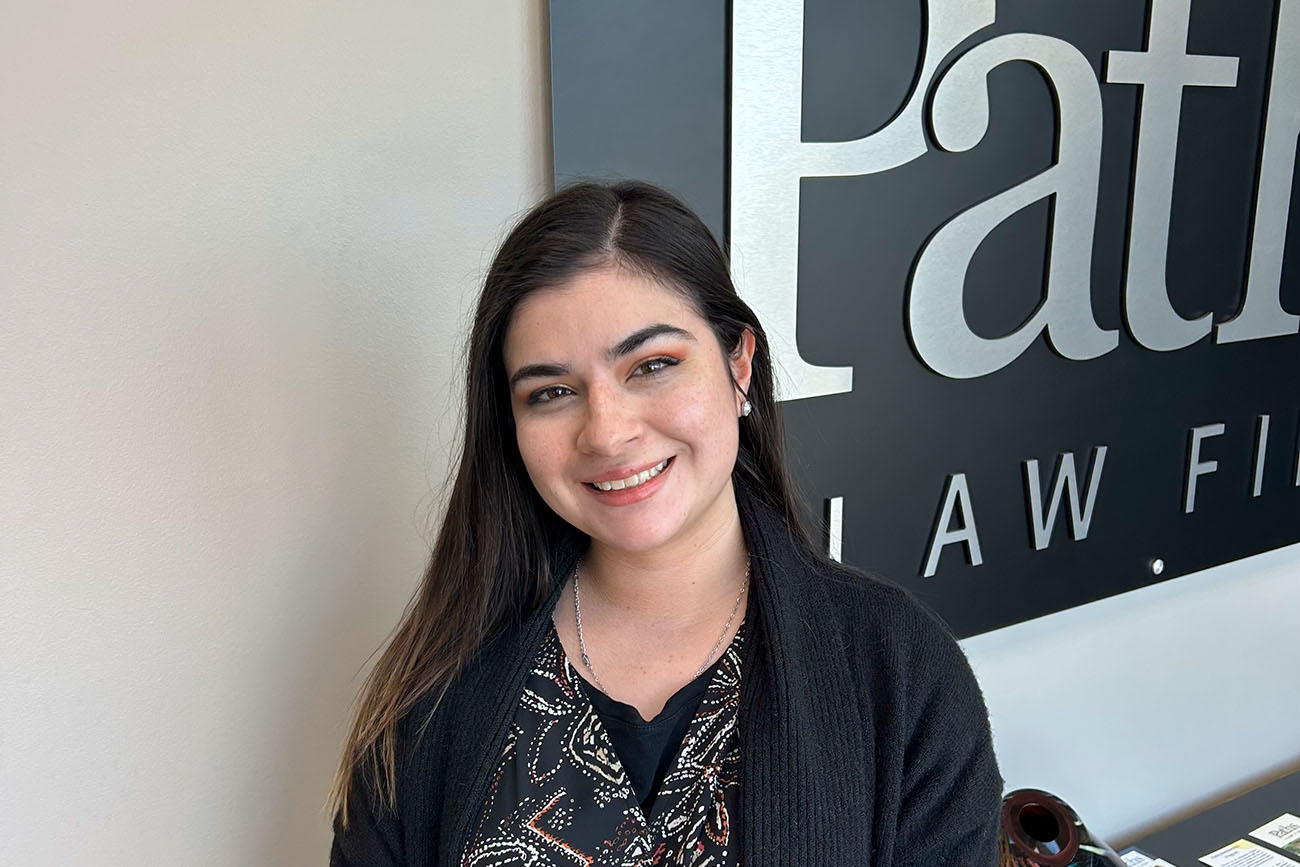*This blog is on the question of who can override a power of attorney (POA). It is for educational purposes only and should not be considered legal advice. The use of the Paths Law Firm website does not establish a client-lawyer relationship.
As our parents age, we start to question what will happen if they lose the ability to make health or financial decisions on their own. This leads to a discussion of what we can do to help them if this situation occurs. Part of the solution may include setting up a power of attorney(POA).
Having a power of attorney can provide a sense of security, knowing there’s a plan to ensure their needs are met and their wishes are respected. We recommend two separate documents; one for health care and the other for general or financial matters. These legal documents allow a trusted person to step in and make important decisions on their behalf, such as managing finances or making healthcare choices, if they cannot do so themselves.
What Kind of Power of Attorney Do I Need?
A power of attorney is a legal document authorizing an “Attorney-in-Fact” (sometimes referred to as an “Agent”) to make decisions on behalf of another person (the Principal), such as a parent or loved one. If the Attorney-in-Fact is unable or unwilling to act on behalf of the Principal, the POA should also provide successors to the initial Attorney-in-Fact.
The POA gives the Attorney-in-Fact certain “powers,” including handling the Principals’ finances, managing their healthcare, including signing documents. These functions are why it is important to choose someone trusted and be clear if there is something they are not to do. If your chosen Agent is unable or unwilling to act, the POA should also appoint backups, called successors, to ensure there is always someone ready to help when needed.
Discussing the potential of a POA is a good ideawhen the Principal is of sound mind. Ideally, the Attorney-in-Fact always acts in the Principal’sbest interests. However, if there are concerns, alternate agentscan be appointed. This ensures there’s always someone reliable to make decisions.
What is a ‘principle’?
In laws on agency, the term “principle” (not to be confused with “principal”) refers to a rule or belief that guides the relationship between an Agent and a Principal. One such principle is the “fiduciary duty,” which requires the Agent to act in the Principal’s best interests, avoid conflicts of interest, and maintain confidentiality. Another principle is “scope of authority,” which defines the limits of the Agent’s power to act on behalf of the principal. These principles help establish agency relationships and govern how Agents conduct themselves.
In some cases, it may become necessary to remove an Agent. If the Principal wants to change the Agent, they can do so and even revoke a power of attorneyat any time. Depending on the Principal’sstate specificlaws, it is crucial to follow legal steps to revoke or amend the POA to avoid complications.
Who Can Override a Power of Attorney (POA)?
Typically, a power of attorney can be overridden by the Principal, the person who granted the power in the first place. This can be done at any time as long as the Principal has the mental capacity to do so.
If there is evidence of abuse or of the Agent acting beyond their authority, a court can intervene, removing the Agent. Understanding the specifics of these scenarios can help you take the proper steps to protect your family’s interests. Additionally, the court systemcan review the case if there are disputes regarding the Agent’s authority.
What Types of POA Exist?
A POA is needed to represent an incapacitated person’s rights, obligations, and desires for estate planning purposes. Generally, a qualified estate planning attorneywill define the responsibilities upon which the Attorney-in-Fact can act.
There are two primary types of power of attorney:
- Medical and/or Healthcare POA:allows the Attorney-in-Fact or Agent to make medical decisions for the Principal. This is often referred to as an Advanced Healthcare Directive. The medical power of attorneyexpressly grants authority to acton health-related decisions.
- Financial and/or General POA: grants an agent the right to make non-health-related decisions for the Principal.
If both types of power of attorney are created, the same person may act as Agent for both, the health care and financial POA. However, some family situations are better resolved when the persons acting as Attorneys-in-Fact are different for the durable powers of attorney.

Immediate & Springing POA
Wondering“What type of power of attorney do I need?”This section has the answer.
The general power of attorney may be effective immediately upon signing, at a certain period of time, or for a specific purpose only. When the POA is immediately effective, authority is granted to the Attorney-in-Fact regardless of the Principal’s ability to make decisions on their own. When it is effective at a certain time, that time is usually described in some way indicating incapacity. When effective upon Incapacity, it is referred to as a “springing power of attorney.”
To distinguish an Immediate and Springing POA, let’s cite an example:
- Immediate Power:Marge is 85 years old. Her health has been declining in the past few years, and Mary, her daughter, has been helping her more and more lately. Marge will be relieved if she relinquishes the authority to deal with financial and health matters. It will be practical for Mary to handle the financial affairs on behalf of her mother.
- Springing Power: As part of Andrew’s estate plan, he created a power of attorney in which he designated his wife, Stephanie, as his Attorney-in-Fact if he became incapacitated. Andrew also assigned his son, Vincento, as Stephanie’s successor. Because the POA is set up as “springing”, Stephanie can only act if Andrew becomes incapacitated. Stephanie will only assume the responsibility of an Attorney-in-fact if Andrew can no longer make decisions independently because of health reasons. In the same vein, Vincent will only become a successor if his mom, Stephanie, also becomes incapacitated.

Durable vs. Non-Durable POA
For estate planning, in which we are planning in case the Principal becomes incapacitated or passes away, the powers of attorney are typically “durable.” This situation means the Attorney-in-Fact has the power to act on behalf of the Principal regardless of mental condition.
However, some POAs can be non-durable. A non-durable POA grants the Agent power to act on behalf of the Principal only if the latter is of sound mind. This POA is typically provided for a specific purpose only. An example is when one spouse works abroad, and the other needs to act on their behalf to sell marital property.
Choosing an Agent for Your POA
When a power of attorney is created, choosing the Attorney-in-Fact is a crucial step. This is a significant decision for both the Principal and the Agent.
You’re the Principal, your Attorney-in-Fact (a.k.a Agent) should be someone you trust to act in your best interest. It is important to include detailed instructions to make the Agent’s job easier and within legal boundaries. In the case of finances, it is essential to consider your Agent’s financial expertise. It is helpful if he is also a financial advisorto assist you with financial decisions.
Choosing an Agent can be a difficult family conversation, especially if the right person for the job is not a family member. Other family member’s emotions can certainly hinder the decision-making process. In this case, an estate planning attorney can help counsel all the parties involved to hopefully avoid or lessen family conflict.
Ensuring the Principal’s wishes are honored requires careful consideration. It’s also a good ideato have alternate or successor Agentslisted. This provides a backup if the first Agent cannot serve.

Need to Override a Power of Attorney?
Proper execution of a POA in Missouri or Kansas only requires a notary public to witness the fixing of signatures by the parties. Some states, such as Florida, require witnesses. If there are responsibilities related to real estate transactions, the legal documents should be recorded with the county’s Recorder of Deeds.
The decision to execute a durable power of attorney is very personal. Not seeking legal advice could be costly and prolong litigation in probate court.
If you’re planning for your own estate, it is smart to establish a POA while you’re of sound mind. Without an estate plan or a POA documenting your wishes, your family could end up in court fighting for claims on your estate. Planning ensures that your wishes are carried out and family relations are peacefully maintained.
If you’re planning for someone else’s estate, it’s important to know who can override a power of attorney if issues arise. If the Principal is of sound mind, only the Principalcan make changes. To change or remove the agent, the principal must create a new POA document. This action ensures that the new Attorney-in-Fact will act according to the Principal’s wishes.
In some cases, the court may need to step in to revoke the authority granted in powers of attorney.This situation usually happens when there is abuse or the agent is not acting in the principal’s best interest. In such cases, it is vital to havealternate Agentslisted in the original POA document.Having a solid plan in place can prevent legal battles and ensure a smooth transition.
Need to execute or override a power of attorney?Contact Paths Elder Law. Our caring and experienced staff is here to help.



































